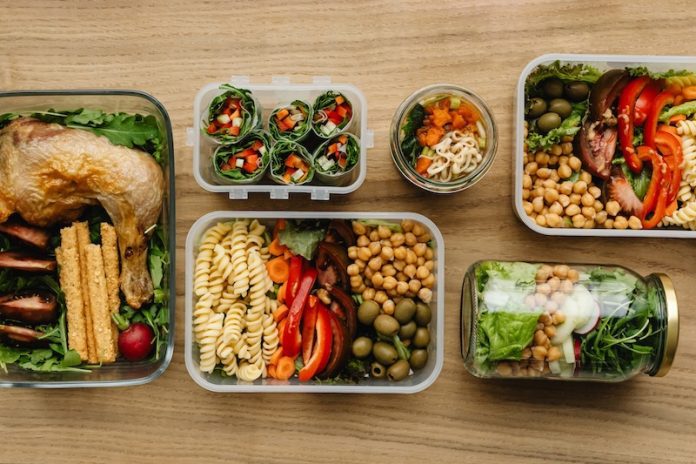
Stroke is a serious medical condition that can have a profound impact on a person’s life. After experiencing a stroke, it’s essential to focus on recovery, which often includes rehabilitation, medication, and lifestyle changes.
One crucial aspect of stroke recovery is diet. The food you eat plays a significant role in your journey towards regaining health and well-being.
In this review, we’ll explore dietary guidelines for stroke recovery, providing easy-to-understand information supported by research evidence.
Background
A stroke occurs when there is a sudden interruption in the blood supply to the brain. This can happen due to a blockage (ischemic stroke) or bleeding (hemorrhagic stroke).
The brain needs a constant supply of oxygen and nutrients carried by blood, and when this supply is disrupted, brain cells can be damaged or die.
Stroke survivors often face various challenges, including physical and cognitive impairments. Nutrition plays a crucial role in supporting the body’s healing processes and reducing the risk of future strokes.
Research has shown that specific dietary choices can aid in stroke recovery and overall well-being.
Dietary Guidelines for Stroke Recovery
Mind the Salt (Sodium): High sodium intake can raise blood pressure, which is a significant risk factor for strokes. Reducing salt in your diet can help control blood pressure. Avoid heavily processed foods, canned soups, and salty snacks. Opt for fresh fruits and vegetables, and use herbs and spices for flavoring.
Embrace Fruits and Veggies: A diet rich in fruits and vegetables provides essential vitamins, minerals, and fiber. These nutrients support overall health and can lower the risk of stroke recurrence. Aim to fill half your plate with colorful fruits and veggies at each meal.
Choose Whole Grains: Whole grains like brown rice, whole wheat bread, and oatmeal are excellent sources of fiber. Fiber aids digestion, helps manage weight, and supports heart health. It’s an essential component of a stroke recovery diet.
Lean Protein Sources: Opt for lean protein sources such as skinless poultry, fish, beans, and legumes. These foods provide protein without the unhealthy saturated fats found in red meat.
Healthy Fats: Include sources of healthy fats in your diet, like avocados, nuts, seeds, and olive oil. These fats can help reduce the risk of another stroke and promote brain health.
Limit Added Sugars: Sugary foods and drinks can contribute to weight gain and increase the risk of diabetes and heart disease. Reducing added sugars in your diet is essential for stroke recovery. Be cautious of hidden sugars in processed foods and sugary beverages.
Moderate Alcohol Consumption: If you consume alcohol, do so in moderation. Excessive alcohol intake can increase the risk of high blood pressure and further strokes. Men should limit alcohol to two drinks per day, while women should aim for just one.
Research Evidence
Numerous studies have investigated the relationship between diet and stroke recovery:
The Mediterranean Diet: Research has consistently shown that a Mediterranean-style diet, rich in fruits, vegetables, whole grains, and healthy fats like olive oil, can reduce the risk of recurrent strokes and improve overall cardiovascular health.
Reducing Salt Intake: Studies have demonstrated that reducing dietary salt intake can help lower blood pressure, reducing the risk of stroke recurrence.
Fruits and Vegetables: A diet high in fruits and vegetables has been linked to improved cognitive function in stroke survivors. These foods are packed with antioxidants and nutrients that support brain health.
Healthy Fats: Consuming foods rich in healthy fats, such as omega-3 fatty acids found in fatty fish (salmon, mackerel), has been associated with a lower risk of stroke and improved recovery outcomes.
Limiting Added Sugars: Research suggests that a high-sugar diet may increase inflammation and oxidative stress in the body, contributing to stroke risk. Reducing added sugars can have positive effects on overall health.
Conclusion
In conclusion, diet plays a crucial role in stroke recovery and reducing the risk of recurrent strokes. Adopting a diet rich in fruits, vegetables, whole grains, lean proteins, and healthy fats while limiting salt, added sugars, and alcohol can support your journey towards better health.
The evidence from numerous studies underscores the importance of these dietary guidelines in stroke recovery.
Always consult with a healthcare professional or registered dietitian before making significant dietary changes, especially if you have specific dietary restrictions or medical conditions. Remember, a healthy diet is a valuable tool on your path to recovery after a stroke.
Follow us on Twitter for more articles about this topic.
Copyright © 2023 Scientific Diet. All rights reserved.








